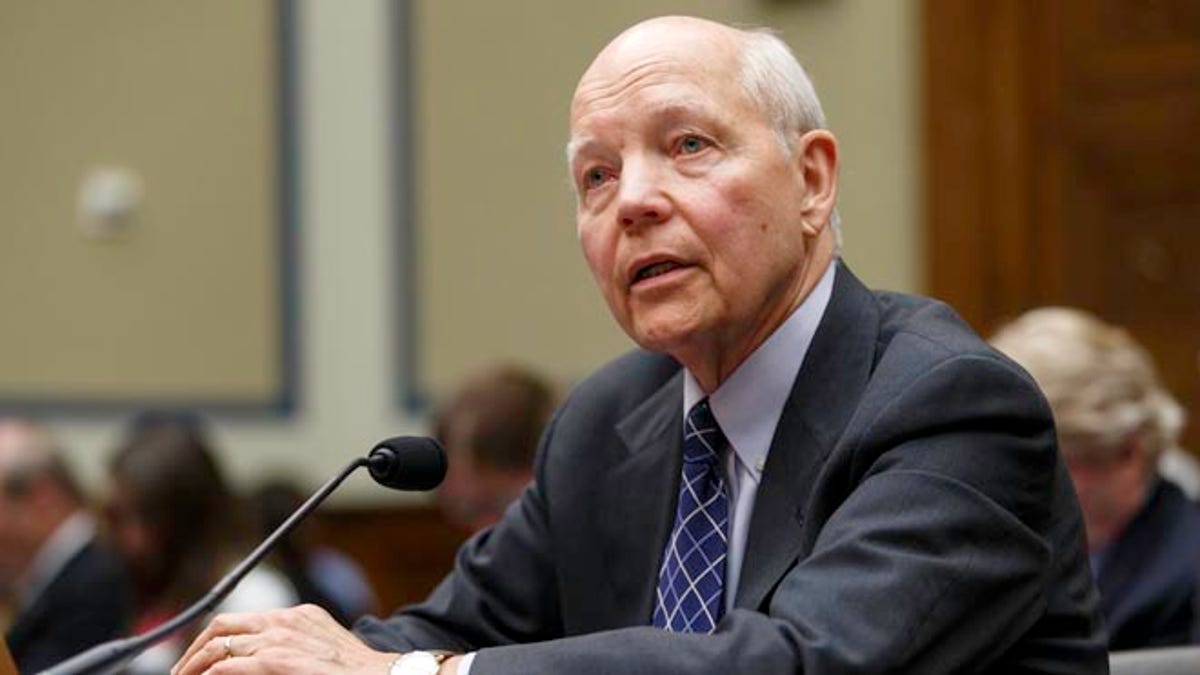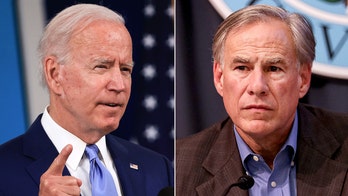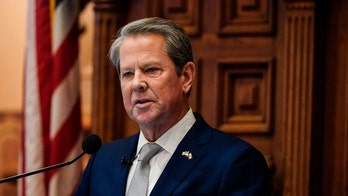
Internal Revenue Service Commissioner John Koskinen testifies under subpoena before the House Oversight Committee on Capitol Hill in Washington, Monday, June 23, 2014. (AP)
The supposedly cash-strapped IRS is facing tough questions from Congress after claiming it just found the money to hire hundreds more enforcement employees.
Commissioner John Koskinen -- who previously has cited budget woes to explain the agency's shaky customer service and other issues -- recently announced they found the "resources" to hire between 600 and 700 new tax enforcement employees.
The agency says those extra "resources" resulted from high attrition rates and worker efficiency, but skeptical lawmakers are demanding answers.
“It was only weeks ago that they were saying they did not have the money [to hire more employees] and today they do have the money?” House Oversight Committee Chairman Jason Chaffetz said.
In an interview with FoxNews.com, the Utah Republican said he will be sending a letter to the commissioner seeking a full accounting of how it was determined the agency now has this extra money for hiring.
“This is the worst-managed entity in all of government and this is [the] latest in a long list of examples of poor management. You cannot testify you can’t do something and then just go around hiring people,” said Chaffetz, a vocal critic of the commissioner who has led the effort to impeach him.
“It should be an easy question to answer, but you watch, it will take weeks, if ever, to get an answer,” he added.
Congress did include a $290 million budget boost in the $1.1 trillion omnibus spending bill passed in December, though those funds were earmarked to address problems with customer service.
In a memo first reported by The Wall Street Journal, Koskinen said that money indeed was used to hire 1,000 employees for their phone lines, calling "taxpayer service" the first priority.
But he said they would also be making their "first significant enforcement hiring" in over five years with additional funds.
“In previous years, job losses across the agency have helped us absorb the funding cuts we have received, but left us with large gaps in various areas across the agency. This year, we’ve determined that we have the resources available to hire these employees as a result of the rate of attrition in enforcement and your continuing dedication to find efficiencies to help us with the budget,” Koskinen wrote.
The IRS has faced an ongoing staffing crisis as an increasing number of older employees retire. Since 2010, the agency also has seen its budget decline by $900 million, with the total number of enforcement employees dropping by 24 percent.
In a March speech at the National Press Club, Koskinen said the IRS workforce would “shrink by another 2,000 to 3,000 full-time employees this year,” which has impacted enforcement efforts.
“As you might imagine, these staffing losses have translated into a steady decline in the number of individual audits over the past six years,” he said.
And a month earlier, Koskinen told congressional appropriators that the IRS “will not be able to replace” as many as 1,800 enforcement officials due to budget cuts.
Last year, Koskinen also cited a cash crunch in explaining customer service issues. After getting additional funding, he told the House Ways and Means Committee in April that “significant improvements” were made in terms of customer service thanks to that.
Sen. Chuck Grassley, Iowa Republican and member of the Senate Finance Committee, questioned the IRS' latest claims.
“The IRS always seems to be able to find more resources when it wants to. Because of that, and because of non-taxpayer service activities, like union work on the taxpayer’s dime, the IRS deserves skepticism when it continuously seeks more money,” he said in an email statement to FoxNews.com.
The new hires will be divided into two so-called waves with the first job announcements in the coming weeks. The second wave will provide “employees with promotional opportunities for higher-level enforcement positions,” and will focus on “high-profile enforcement areas, including international tax issues, refund fraud and identity theft,” according to the memo.
Congress can expect to hear additional requests for budget increases in the coming months.
“While adding 600 to 700 new enforcement hires will not replace those who have left, it will help fill key gaps in our enforcement workforce created by years of attrition,” added Koskinen.




